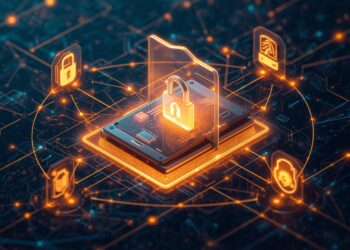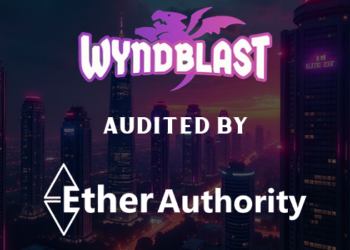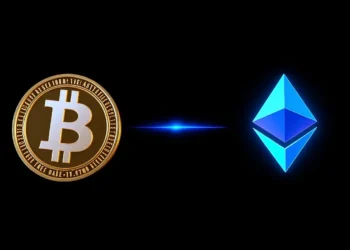Introduction
Blockchain technology is changing how governments and organizations make decisions. It offers a way to create systems that are more honest, open, and reliable. This is all thanks to features like decentralization, transparency, and the fact that data cannot easily be changed once recorded. These qualities help fix old issues in how we run things, from voting to managing public funds. As more governments start adopting blockchain, the goal is to make processes safer, faster, and more fair for everyone involved.
Blockchain in Democratic Voting Systems
Enhancing Electoral Transparency and Security
Using blockchain for voting helps make sure votes are counted correctly. It prevents cheating by recording votes on a tamper-proof ledger. The transparency of blockchain means everyone can verify the results. For example, West Virginia tested a blockchain voting system for overseas voters. The project aimed to improve voting security and reduce fraud.
Increasing Voter Accessibility and Engagement
Blockchain also makes it easier for people to participate in elections. Remote voting becomes possible without worries about tampering. Think about citizens who can’t reach polling stations easily—blockchain gives them a secure way to cast votes from anywhere. This can boost turnout and get more people involved in democracy.
Challenges and Limitations
Even with benefits, blockchain voting isn’t perfect. Scalability remains a concern, especially with large elections. Some people still lack access to the necessary technology, which deepens inequality. Governments must also address rules and laws, which are still catching up with new tech. These hurdles must be overcome for blockchain voting to become widespread and trustworthy.
Blockchain for Transparent Public Procurement and Budgeting
Ensuring Accountability in Public Spending
Blockchain records transactions forever, making it easier to track public money. This reduces chances of corruption or fraud. For instance, Estonia uses blockchain in its e-Residency program to keep financial records secure. Governments can see exactly how funds are spent, building trust with citizens.
Streamlining Procurement Processes
Smart contracts on blockchain can automate order approvals and verify agreements instantly. This reduces delays and errors in government buying processes. Automated contracts claim to make procurement faster, more transparent, and less prone to favoritism.
Actionable Tips for Implementation
If your government wants to try this out, start small. Pilot projects can test smart contracts for procurement. Use established blockchain platforms with proven security. Always involve stakeholders early to build trust in new systems.
Blockchain-Based Identity and Digital IDs
Creating Secure and Self-Sovereign Identities
Blockchain helps people control their own identities. Instead of relying on government documents, users can own a digital ID on a blockchain. Dubai’s “DubaiNow” app is a perfect example, giving citizens quick access to services with blockchain-based IDs.
Improving Access to Government Services
Digital IDs cut down on paperwork and long waits. When identity data lives on a blockchain, fraud drops and privacy improves. Citizens can prove who they are faster and more securely, making it easier to apply for permits, benefits, or other services.
Ensuring Data Privacy and Compliance
Data privacy rules like GDPR still matter. Blockchain IDs can be designed to give only necessary info while protecting sensitive data. This balance helps governments meet legal standards while offering better service.
Blockchain for Democratic Decision-Making and Citizen Involvement
Participatory Governance Platforms
Blockchain makes direct democracy possible. Citizens can input ideas, vote, and see results transparently. Projects like Horizon State create platforms where everyone’s voice counts, without middlemen. This kind of participation can lead to more trust and real change.
Land Registry and Property Rights
Land titles are prone to disputes and fraud. Blockchain can record ownership permanently, making titles tamper-proof. Sweeden has already tested blockchain for land registries, reducing errors and disagreements. Clear records boost confidence in property rights.
Challenges and Opportunities
However, big systems face hurdles. Scaling up for millions of land titles or votes is tough. Not everyone has internet or digital skills, so access remains a concern. Still, blockchain opens new doors for inclusive participation and better record-keeping.
Regulatory Frameworks and Future Outlook
Establishing Legal Standards for Blockchain Governance
To succeed, laws need to catch up. Governments must craft rules that protect privacy and security while allowing innovation. Clear legal standards help build trust in blockchain solutions.
Collaboration Between Governments, Industry, and Academia
Partnerships matter. Governments, tech companies, and universities are working together to explore blockchain projects. These efforts share knowledge and reduce risks, making adoption smoother.
Future Trends and Predictions
Looking ahead, blockchain could connect different systems worldwide. Interoperability will let different governments share data securely. Expect to see more smart regulations and global efforts to harness blockchain for better governance.
Conclusion
Blockchain offers big benefits for governance: increased transparency, better security, and stronger accountability. Still, creating smart rules is vital to avoid new problems. Governments and organizations must plan carefully, learn from pilot projects, and follow best practices. With thoughtful steps, blockchain can truly revolutionize how we run society, making it more fair and trustworthy for everyone.
Join Us : Twitter | Website | GitHub | Telegram | Facebook | YouTube

























